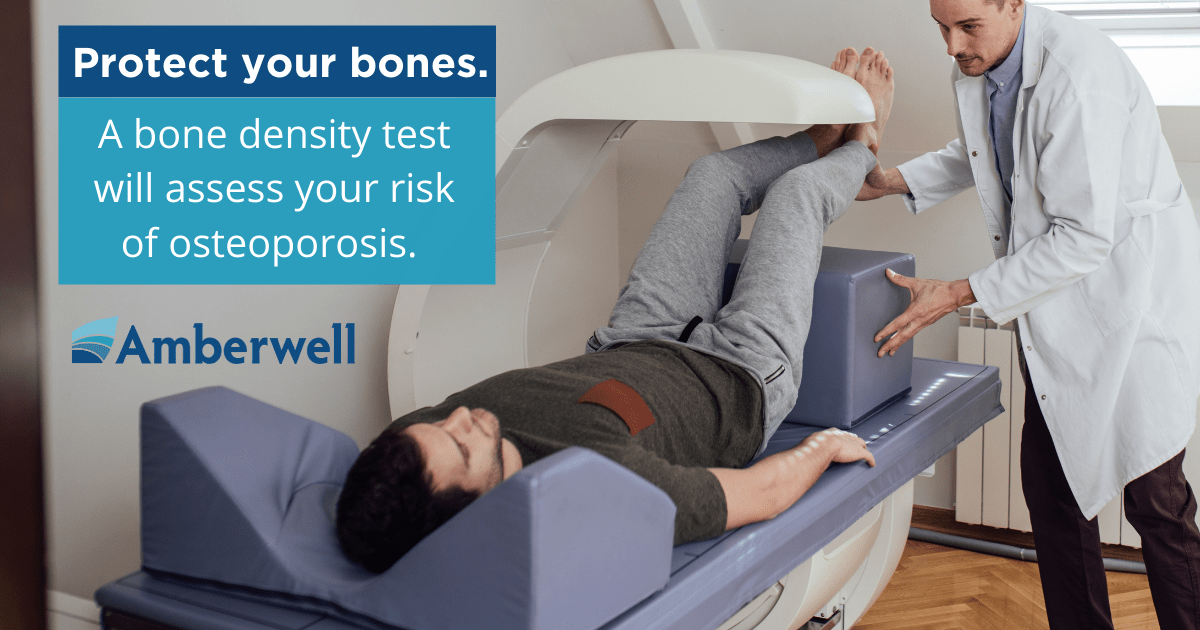Osteoporosis is a degenerative condition that causes a decrease in the density of bones, making the bones fragile and more likely to break. As we age, our bodies naturally lose bone density; however, osteoporosis goes beyond normal bone loss and can lead to serious health issues such as bone fractures, loss of mobility, and extreme pain. Osteoporosis is often called a “silent disease” because people with the condition cannot feel their bones getting weaker, and many do not know they have the disease until they break a bone.
Bone Density Scanning
The only way to diagnose osteoporosis before a broken bone occurs is with a bone density scan. Amberwell Atchison’s expert team of radiologic technologists offers a bone density scan called DEXA, a type of noninvasive, low-dose x-ray test used to measure the amount of calcium and other minerals in a bone segment, typically the hip or the spine. The test is able to determine bone strength, identify osteoporosis and/or monitor its progression, and determine a person’s risk of fracturing a bone in the future.
Who should have a bone density scan?
- Women over 65
- Men over 70
- Men 50-69 and women under 65 with risk factors of osteoporosis such as
a family history of the disease,
a personal history of fractures,
taking drugs that can interfere with the body’s process of rebuilding bone - People who have broken a bone after age 50
- People who have lost 1.5 inches of height or more
What to Expect on Exam Day
- 10-20 minutes, lying on your back on a table
- Painless, noninvasive low-dose radiation
How to Prepare for a Bone Density Scan
- Wear comfortable clothing without metal such as zippers and belts
- Avoid calcium supplements 24 hours prior to your exam
Osteoporosis is Common among Older Adults
Approximately ten million Americans have osteoporosis and another forty-four million have low bone density, which puts them at an increased risk of developing the disease. One in two women and up to one in four men over age fifty will break a bone due to this condition. Women are more likely to suffer a broken bone from osteoporosis than they are to have a heart attack, stroke, or develop breast cancer. Men are more likely to break a bone due to osteoporosis than they are to get prostate cancer. Although osteoporosis is a serious disease, it is treatable and even preventable.
Be Proactive about Your Bone Health
Talk to your Amberwell primary care provider about having a bone density test and discuss any concerns you have about your bone health. Taking precautions now can help protect and maintain your bone health for the future.

